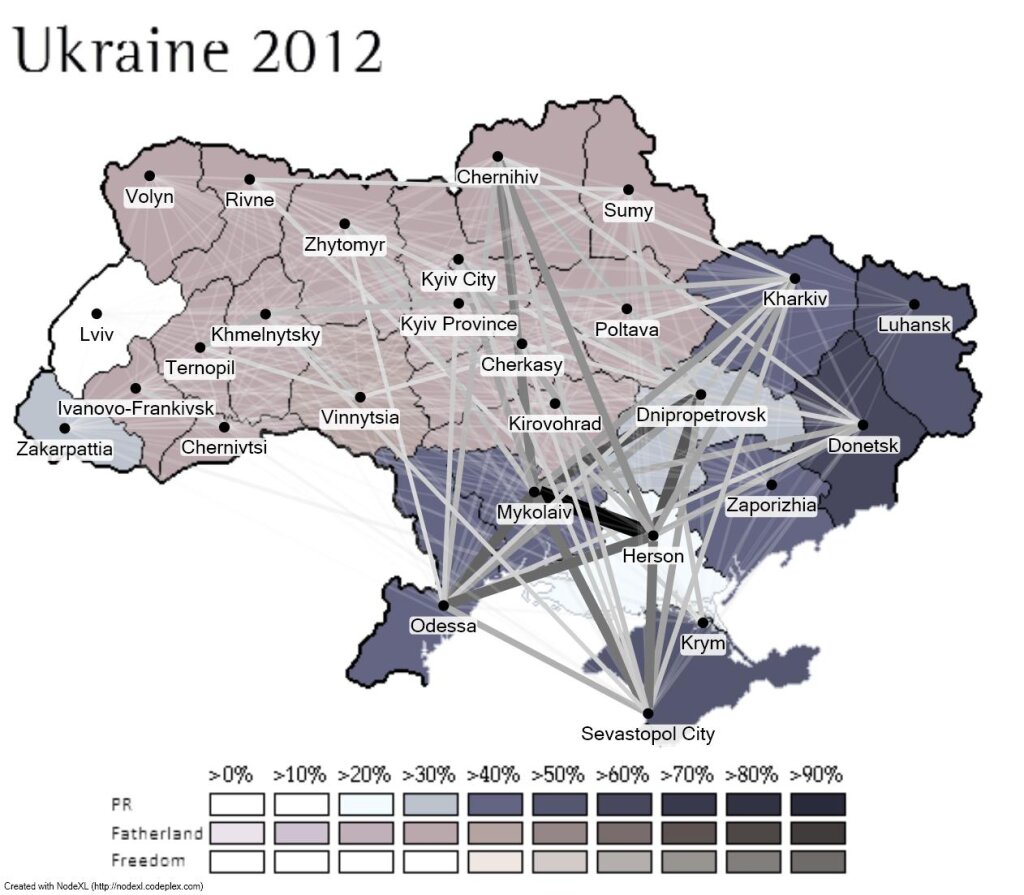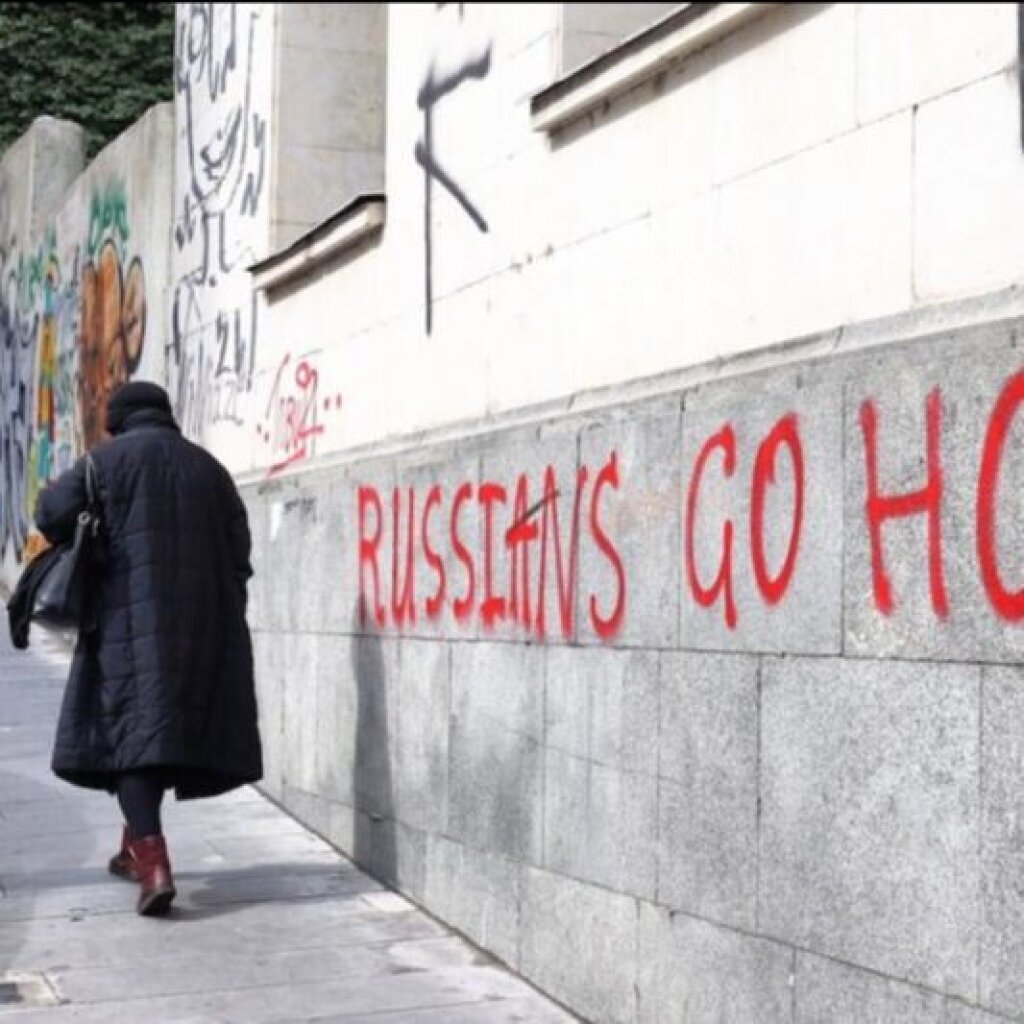The Jordan Center's Colloquium Series serves to introduce the most recent work of scholars within the Slavic field. Participants come from universities across the country and abroad, and work in disciplines ranging from history, political science and anthropology to literature and film. In the first session of the Spring 2015 Colloquium Series, Dinissa Duvanova will join us from Lehigh University.
Duvanova will illustrate the findings of "Social Networks as a Barometer of Political Polarization: Analysis of Ukrainian Online Activism," a paper written as part of a collaborative research Duvanova conducted with Alexander Semenov (Department of Computer Science and Information Systems, The University of Jyvaskyla, Finland) and Alexander Nikolaev (Department of Industrial and Systems Engineering, University at Buffalo).
New electronic forms of political communication and association have become increasingly popular as mechanisms of mobilization in countries with repressive political institutions and unfavorable climates for citizens collective action. The effectiveness of these new forms of association in mobilizing electoral participation, however, remains uncertain even in developed democratic regimes. The paper investigates connections between regional variation in electoral behavior and regional distribution of electronic social networks in the case of Ukraine's politically polarized and institutionally unstable democracy. Duvanova and her colleagues examine online political activism during Ukrainian parliamentary (2012 and 2014) and presidential (2010 and 2014) elections. Their analysis of online networks shows that, somewhat contrary to conventional wisdom, electronic communication does not bridge political divides. This finding casts doubt on the effectiveness of online forms of political communication as a source of behavioral change and demonstrates that network analysis is a useful tool for assessing the extent of political polarization.
Dinissa Duvanova is an Assistant Professor in the Department of International Relations at Lehigh University. Duvanova received her Ph.D. from The Ohio State University in 2007. In 2007-2008, she was a postdoctoral fellow at Princeton University. Duvanova's publications, among others, include a book with Cambridge University Press and solo articles in British Journal of Political Science, Comparative Politics and World Development.



